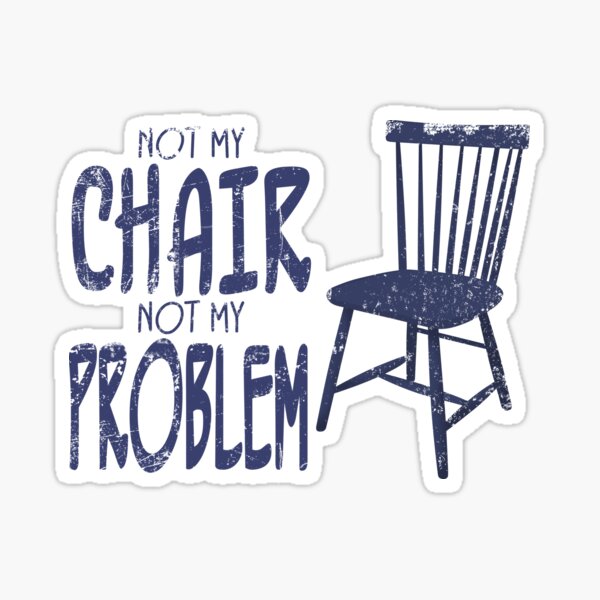The Dangers of Not My Chair Not My Problem, How Avoidance Impacts Productivity
 Jasier Bro
Jasier Bro
In many workplaces, the phrase "Not my chair, not my problem" reflects a mindset of avoidance and disengagement, where individuals distance themselves from issues or responsibilities that they perceive as outside their immediate scope of work or authority. While this mentality may offer temporary relief from perceived burdens, its long-term consequences can be detrimental to productivity, teamwork, and overall organizational effectiveness. In this insightful exploration, we delve into the dangers of the "Not my chair, not my problem" mindset, examining how avoidance behaviors impact productivity and offering strategies for fostering a more proactive and collaborative workplace culture.
Understanding the "Not My Chair Not My Problem" Mentality
The "Not my chair, not my problem" mentality is characterized by a lack of ownership and accountability for issues or tasks that fall outside one's designated role or responsibilities. Instead of taking proactive steps to address challenges or contribute to solutions, individuals may dismiss or deflect issues, believing that they are someone else's problem to solve. This mindset can manifest in various forms, including passing the buck, finger-pointing, and shifting blame onto others. While it may provide temporary relief from perceived stress or pressure, the "Not my chair, not my problem" mentality ultimately undermines collaboration, problem-solving, and organizational effectiveness.
The Impact of Avoidance on Productivity
Avoidance behaviors associated with the Not my chair not my problem mentality can have significant implications for productivity in the workplace. When individuals disengage from issues or tasks that are not directly within their purview, essential problems may go unresolved, leading to delays, errors, and inefficiencies. Moreover, the lack of accountability and ownership can create a culture of apathy and complacency, where mediocrity is tolerated, and excellence is elusive. Over time, this erosion of productivity can hinder organizational growth, innovation, and competitiveness, putting the entire enterprise at risk.
Recognizing the Signs of Mentality
Individuals may routinely deflect responsibility for issues or tasks, passing them off to others without taking any meaningful action themselves. This behavior perpetuates a cycle of avoidance and can lead to unresolved problems and resentments among team members. When confronted with challenges or failures, individuals may engage in finger-pointing, blaming others for problems instead of taking accountability for their contributions or lack thereof. This blame game fosters a culture of mistrust and defensiveness, inhibiting collaboration and problem-solving. Employees who subscribe to the "Not my chair, not my problem" mentality may demonstrate a lack of initiative or proactivity in their work. Instead of taking ownership of challenges and seeking solutions, they wait for instructions or expect others to step in and solve problems for them.
The Consequences on Team Dynamics
The Not my chair not my problem mentality can have profound consequences for team dynamics and interpersonal relationships in the workplace. When individuals prioritize self-interest over collective goals and responsibilities, it erodes trust, cohesion, and morale within teams. Resentment may build as team members feel burdened by the unchecked responsibilities of their peers, leading to conflicts, breakdowns in communication, and decreased collaboration. Ultimately, the divisive nature of the "Not my chair, not my problem" mentality undermines teamwork and hinders the collective success of the organization.
Conclusion
The Not my chair not my problem mentality represents a significant obstacle to productivity, collaboration, and organizational success. By recognizing the signs of avoidance behaviors and implementing strategies to overcome them, organizations can foster a culture of accountability, ownership, and proactive engagement. By promoting a collective sense of responsibility for addressing challenges and pursuing excellence, workplaces can unlock the full potential of their teams and achieve sustainable growth and success.
Subscribe to my newsletter
Read articles from Jasier Bro directly inside your inbox. Subscribe to the newsletter, and don't miss out.
Written by
